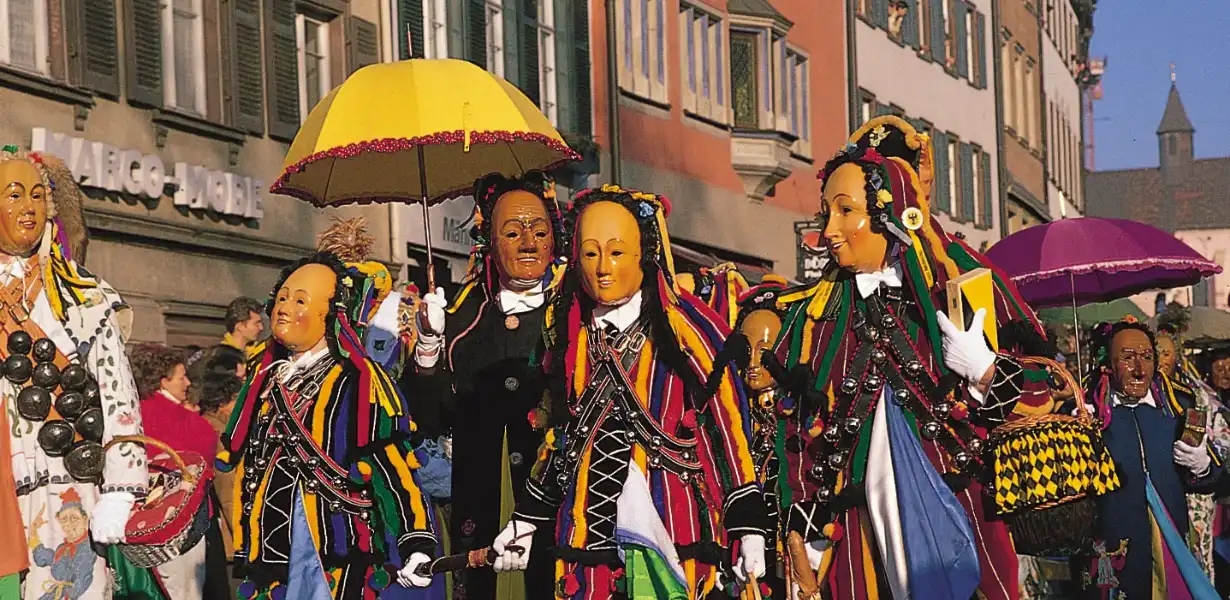
Germany, a land adorned with picturesque landscapes and a fascinating history, is equally renowned for its vibrant cultural traditions. This captivating nation’s customs are like a thread connecting the past with the present, making it an intriguing destination for those seeking to uncover the essence of Europe’s heartland.
Oktoberfest: A Feast for the Senses
The world-famous Oktoberfest takes the limelight as an annual celebration of Bavarian culture. This 16 to 18-day beer festival originates from Munich, showcasing a lively mix of traditional music, dancing, and, of course, a plethora of finely brewed beers.
Christmas Markets: A Winter Wonderland
As winter approaches, Germany transforms into a fairy tale land with its enchanting Christmas markets. Strung with twinkling lights, these markets offer a unique shopping experience, where visitors can find handcrafted ornaments, delectable treats, and warm beverages.
Karneval: Embracing Merriment
Germany’s version of Carnival, known as Karneval, is a time of boisterous celebration before the solemnity of Lent. Colorful parades, elaborate costumes, and exuberant street parties come together in a spectacle that showcases the nation’s love for revelry.
St. Nicholas Day: A Treat for the Good-hearted
St. Nicholas Day on December 6th is a cherished tradition where children eagerly await a visit from St. Nicholas. The saint rewards good behavior with gifts and sweets, while his mischievous companion, Krampus, reminds the naughty ones to mend their ways.
Easter Egg Trees: A Blossoming Spring Tradition
In the east of Germany, the custom of decorating trees with intricately painted Easter eggs has flourished. These “Ostereierbaum” trees are a vibrant symbol of spring’s arrival, evoking joy and optimism after the cold winter months.
Walpurgis Night: Wards Off Wicked Spirits
Walpurgis Night, celebrated on April 30th, is a mystical event where bonfires are lit to keep evil spirits at bay. This tradition, with pagan roots, has evolved into a night of music, dancing, and revelry.
Advent Calendars: Counting Down to Christmas
The Advent calendar tradition originated in Germany and has spread globally. It involves opening a small door or compartment each day leading up to Christmas, revealing a hidden treat, a small gift, or a meaningful message.
Schultüte: A Sweet Start to School
On their first day of school, German children receive a Schultüte—a large, cone-shaped bag filled with school supplies, sweets, and small toys. This charming tradition helps ease the transition into formal education.
Sauerkraut New Year’s Blessing: A Tangy Tradition
In some regions of Germany, consuming a spoonful of sauerkraut at the stroke of midnight on New Year’s Eve is believed to bring luck and blessings for the year ahead. This unique practice adds a tangy twist to the celebrations.
Maypole Dancing: Welcoming Spring with Grace
Maypole dancing is a charming springtime tradition where communities come together to decorate and dance around a tall pole. This joyful event symbolizes the end of winter and the revival of life.
Final Words
As we journey through these top 10 German cultural traditions, we’re met with a blend of history, joy, and togetherness. From the grandeur of Oktoberfest to the quaint charm of Easter egg trees, each tradition reflects the nation’s deep-rooted values and its people’s genuine zest for life.
Commonly Asked Questions
Q1: What is the significance of Oktoberfest?
A1: Oktoberfest holds historical and cultural importance, uniting Bavarians in celebration of their heritage and providing an opportunity for both locals and tourists to immerse themselves in traditional music, dances, and delectable cuisine.
Q2: How do Germans celebrate Christmas markets?
A2: Germans embrace the festive spirit by wandering through Christmas markets, sipping on mulled wine, shopping for handcrafted gifts, and relishing seasonal treats. The markets offer a unique blend of holiday cheer and artistic craftsmanship.
Q3: What role does Karneval play in German culture?
A3: Karneval is a lively pre-Lenten celebration that allows Germans to shed their inhibitions and join in merrymaking. Through parades and elaborate costumes, participants revel in the joy of unity and shared festivity.
Q4: Why are Easter egg trees significant?
A4: Easter egg trees symbolize the renewal of life and the arrival of spring. By adorning trees with colorful eggs, Germans embrace the changing seasons and the optimism that comes with them.
Q5: What’s the story behind Schultüte?
A5: The Schultüte tradition stems from the desire to ease children’s anxiety on their first day of school. Filled with school supplies and sweets, the cone-shaped bag symbolizes the sweetness and excitement of learning.





